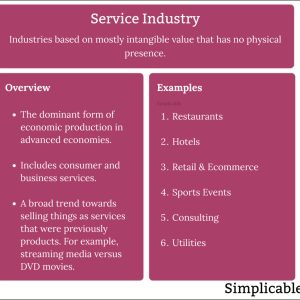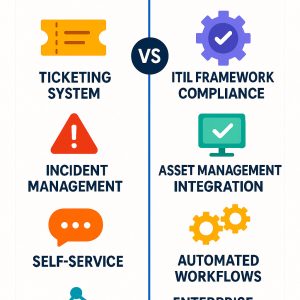The provision of specialized cleaning and sanitation for food preparation environments constitutes a vital support function for businesses operating in the foodservice industry. This specialized activity encompasses the thorough removal of grease, food debris, and other contaminants from surfaces, equipment, and ventilation systems within establishments such as restaurants, cafeterias, and institutional kitchens. For example, a restaurant might contract with a vendor to ensure its cooking surfaces are degreased and sanitized daily, meeting stringent hygiene standards.
Maintaining a sanitary cooking environment is paramount for ensuring public health, preventing foodborne illnesses, and complying with regulatory mandates. Historically, the responsibility for maintaining cleanliness rested solely with in-house staff. However, the increasing complexity of sanitation standards and the potential liabilities associated with inadequate hygiene have driven many businesses to outsource these tasks to specialized providers. This outsourcing allows businesses to focus on their core competencies while ensuring adherence to the highest levels of cleanliness and safety.
The subsequent sections will address various aspects of this critical function, including the scope of services offered, regulatory considerations, the impact on operational efficiency, and key factors to consider when selecting a service provider. A comprehensive understanding of these elements is essential for any business seeking to maintain a safe and efficient food preparation environment.
Suggested read: Discover Your Student Loan Servicer: A Guide to Identifying and Contacting the Right Party
1. Grease Removal
Grease removal is an indispensable component of commercial kitchen cleaning services, directly impacting safety, hygiene, and operational efficiency. The accumulation of grease, a byproduct of cooking processes involving fats and oils, poses significant risks. For example, accumulated grease in ventilation systems creates a severe fire hazard. Furthermore, grease deposits on surfaces harbor bacteria and attract pests, compromising food safety and potentially leading to health code violations.
Commercial kitchen cleaning services address these challenges through specialized techniques and equipment. High-pressure washing, chemical degreasers, and steam cleaning are commonly employed to effectively remove grease from various surfaces, including cooking equipment, floors, and ventilation hoods. A failure to implement effective grease removal protocols can result in costly equipment malfunctions, increased energy consumption due to obstructed ventilation, and potential legal liabilities arising from safety violations or foodborne illness outbreaks. Consider the case of a restaurant facing temporary closure due to excessive grease buildup discovered during a health inspection; the costs associated with remediation and lost revenue far outweigh the investment in routine grease removal services.
In conclusion, the correlation between grease removal and the broader scope of commercial kitchen cleaning services is critical. Comprehensive grease removal not only mitigates immediate risks but also contributes to a safer, more hygienic, and more efficient kitchen environment. It represents a proactive measure that safeguards the well-being of staff and customers while ensuring compliance with regulatory standards.
2. Equipment sanitation
Equipment sanitation forms a cornerstone of commercial kitchen cleaning services, directly impacting food safety and public health. Inadequate sanitation of food preparation equipment provides an environment conducive to bacterial growth and cross-contamination. This, in turn, elevates the risk of foodborne illnesses, potentially leading to significant health consequences for consumers and reputational damage for businesses. Commercial kitchen cleaning services address this risk by employing specialized cleaning agents and techniques designed to eliminate pathogens and contaminants from all food contact surfaces. For example, industrial dishwashers utilizing high temperatures and sanitizing solutions are essential for cleaning utensils, cookware, and serving dishes. Similarly, food slicers, mixers, and other processing equipment require meticulous cleaning and disinfection after each use to prevent the transfer of harmful bacteria between different food products.
The implementation of rigorous equipment sanitation protocols extends beyond simply cleaning visible dirt and grime. It involves understanding the specific cleaning requirements of each piece of equipment, adhering to manufacturer guidelines, and utilizing appropriate cleaning agents that are both effective and safe for food contact surfaces. Failure to properly sanitize equipment can result in the survival and proliferation of harmful microorganisms, such as Salmonella, E. coli, and Listeria, even after thorough cleaning. Consider the case of a catering company experiencing a food poisoning outbreak traced back to improperly sanitized cutting boards; the incident not only resulted in financial losses but also severely impacted the company’s credibility and future business prospects. Regular inspection and maintenance of cleaning equipment are also crucial to ensure its proper functioning and effectiveness.
In summary, equipment sanitation is an indispensable element of commercial kitchen cleaning services. Its importance lies in the direct correlation between sanitized equipment, reduced risk of foodborne illnesses, and the overall health and safety of the public. Businesses prioritizing thorough equipment sanitation demonstrate a commitment to responsible food handling practices and regulatory compliance, ultimately contributing to a safer and more trustworthy food service industry. Overlooking this crucial aspect can lead to severe consequences, underscoring the need for consistent and meticulous sanitation protocols within all commercial kitchen settings.
3. Ventilation cleaning
Ventilation cleaning represents a critical, often overlooked, component of comprehensive commercial kitchen cleaning services. The primary function of a commercial kitchen ventilation system is to remove grease, smoke, heat, and odors generated during cooking processes. Over time, these substances accumulate within the ventilation ducts, hoods, and exhaust fans, creating several adverse consequences. Specifically, accumulated grease poses a significant fire hazard, as it is highly flammable. Reduced airflow due to obstructed ventilation leads to increased energy consumption and a less comfortable working environment for kitchen staff. Furthermore, the buildup of contaminants promotes the growth of bacteria and mold, impacting air quality and potentially contaminating food preparation surfaces. Therefore, routine ventilation cleaning is essential for maintaining a safe, hygienic, and efficient kitchen operation.
Commercial kitchen cleaning services typically employ specialized equipment and techniques for ventilation cleaning. These may include pressure washing, chemical degreasing, and manual scraping to remove accumulated grease and debris. A thorough cleaning encompasses all components of the ventilation system, from the hood filters to the exhaust fan on the roof. For instance, a restaurant that neglects ventilation cleaning may experience increased instances of smoke and odors permeating the dining area, impacting the customer experience. More critically, the buildup of grease in the exhaust ducts elevates the risk of a kitchen fire, potentially leading to significant property damage and business interruption. Regular maintenance, including filter replacement and periodic cleaning of the entire system, is crucial for mitigating these risks.
In conclusion, the effective implementation of ventilation cleaning protocols is inextricably linked to the overall success of commercial kitchen cleaning services. It is not merely a cosmetic procedure; rather, it is a proactive measure that safeguards against fire hazards, improves air quality, enhances operational efficiency, and promotes a healthier working environment. The failure to prioritize ventilation cleaning undermines the effectiveness of other sanitation efforts and exposes businesses to unnecessary risks. Therefore, a comprehensive approach to commercial kitchen cleaning must always include thorough and consistent ventilation maintenance.
4. Waste management
Waste management in commercial kitchens is inextricably linked to the efficacy of cleaning services. The accumulation of food scraps, grease, packaging materials, and other byproducts of food preparation directly impacts hygiene, sanitation, and the overall operational efficiency of the facility. Inadequate waste management practices create environments conducive to pest infestations, bacterial growth, and unpleasant odors, all of which compromise food safety and can lead to health code violations. Effective commercial kitchen cleaning services must therefore incorporate robust waste management protocols to address these issues. For example, a well-structured waste management program includes the proper segregation of different waste streams (e.g., food waste, recyclables, general trash), the use of appropriate containers with secure lids, and the regular removal of waste from the kitchen area. These practices minimize the potential for cross-contamination and create a cleaner, safer working environment.
Suggested read: Find Young's Funeral Home Obituaries | Memorial Services
The connection extends beyond simply removing visible waste. Comprehensive waste management also involves the proper disposal of grease and other liquid waste, which can pose significant environmental hazards if not handled correctly. Grease traps must be regularly cleaned and maintained to prevent clogs in the plumbing system and to avoid the discharge of grease into the sewer system. Furthermore, adherence to local regulations regarding waste disposal is crucial for avoiding fines and ensuring compliance with environmental standards. Consider a restaurant that implements a composting program for food waste; this not only reduces the amount of waste sent to landfills but also demonstrates a commitment to sustainability, which can enhance the business’s reputation and attract environmentally conscious customers. The cleaning service plays a key role in maintaining the composting system and ensuring that the compostable materials are properly collected and transported.
In summary, waste management is an indispensable component of commercial kitchen cleaning services. It is not merely an ancillary activity but rather an integral part of maintaining a hygienic, safe, and environmentally responsible food preparation environment. By implementing comprehensive waste management protocols, businesses can minimize the risk of pest infestations, prevent bacterial growth, comply with regulatory requirements, and promote a cleaner, healthier workplace. The effectiveness of commercial kitchen cleaning services is directly correlated to the rigor and consistency of its waste management practices, underscoring the need for a holistic approach to kitchen sanitation.
5. Regulatory compliance
Adherence to health and safety regulations is a fundamental driver behind the demand for commercial kitchen cleaning services. Governmental bodies at the local, regional, and national levels establish specific standards for cleanliness and sanitation in food preparation environments. These regulations are designed to minimize the risk of foodborne illnesses, protect public health, and ensure fair operating conditions within the foodservice industry. Commercial kitchens are subject to regular inspections by health officials, who assess compliance with these regulations. Failure to meet the required standards can result in penalties ranging from fines and temporary closures to license revocation. For example, a restaurant found to have unsanitary conditions, such as excessive grease buildup or pest infestations, may be ordered to cease operations until the issues are rectified. Consequently, the need to comply with these regulatory mandates is a primary reason why businesses engage commercial kitchen cleaning services.
The scope of regulatory compliance extends beyond merely cleaning visible surfaces. It encompasses the use of approved cleaning agents, the implementation of specific cleaning protocols, and the maintenance of detailed records documenting cleaning activities. Commercial kitchen cleaning services possess the expertise and resources to navigate this complex regulatory landscape. They are familiar with the specific requirements of different jurisdictions and can develop customized cleaning plans that ensure compliance. Furthermore, these services often provide documentation that can be used to demonstrate adherence to regulations during health inspections. For instance, a cleaning service may provide a log showing the dates and times that various kitchen components, such as ventilation hoods and grease traps, were cleaned and inspected. The effectiveness of a commercial kitchen cleaning service is therefore directly tied to its ability to help clients meet their regulatory obligations. Ignoring regulatory requirements can result in legal repercussions, reputational damage, and significant financial losses.
In summary, regulatory compliance is not simply an ancillary benefit of commercial kitchen cleaning services; it is a core component of the value proposition. The stringent regulations governing food preparation environments necessitate a specialized approach to cleaning and sanitation. Commercial kitchen cleaning services offer the expertise, resources, and documentation needed to ensure that businesses meet these regulatory standards, thereby protecting public health and safeguarding the long-term viability of their operations. The ongoing emphasis on food safety and hygiene underscores the critical importance of regulatory compliance as a driving force in the commercial kitchen cleaning services market.
Frequently Asked Questions About Commercial Kitchen Cleaning Services
This section addresses common inquiries regarding commercial kitchen cleaning services, providing clarity on their scope, benefits, and operational aspects.
Question 1: What constitutes a “commercial kitchen” in the context of cleaning services?
The term “commercial kitchen” refers to any facility where food is prepared for sale or service to the public. This includes restaurants, catering businesses, cafeterias, institutional kitchens (e.g., hospitals, schools), and food processing plants. The cleaning requirements for these facilities are typically more stringent than those for residential kitchens due to the higher volume of food production and the increased risk of foodborne illnesses.
Question 2: What is the typical frequency of commercial kitchen cleaning services?
Suggested read: Who's Benchmark Services Calling? (And Why?)
The frequency of cleaning services depends on several factors, including the volume of food production, the type of cuisine prepared, and regulatory requirements. High-volume kitchens may require daily cleaning, while others may need cleaning services on a weekly or bi-weekly basis. Specific areas, such as grease traps and ventilation hoods, may require more frequent attention.
Question 3: What are the key components of a comprehensive commercial kitchen cleaning service?
A comprehensive cleaning service typically includes grease removal from cooking equipment and ventilation systems, equipment sanitation to eliminate bacteria and pathogens, floor cleaning to remove spills and debris, waste management to ensure proper disposal of food waste and recyclables, and overall sanitation to maintain a hygienic environment. Some services may also include pest control and deep cleaning of hard-to-reach areas.
Question 4: How does the selection of cleaning agents impact the safety and effectiveness of commercial kitchen cleaning services?
The selection of cleaning agents is critical to ensure both safety and effectiveness. Cleaning agents must be approved for use in food preparation environments and must be effective at removing grease, grime, and pathogens without leaving harmful residues. Eco-friendly and non-toxic options are increasingly preferred to minimize environmental impact and protect the health of kitchen staff and customers. The proper dilution and application of cleaning agents are also essential to avoid damaging equipment or compromising food safety.
Question 5: What are the potential consequences of neglecting commercial kitchen cleaning services?
Neglecting proper cleaning can lead to a range of negative consequences, including increased risk of foodborne illnesses, pest infestations, fire hazards due to grease buildup, health code violations, and damage to kitchen equipment. These consequences can result in significant financial losses, reputational damage, and potential legal liabilities.
Question 6: How can a business evaluate the quality and reliability of commercial kitchen cleaning services?
Businesses should evaluate potential cleaning service providers based on their experience, reputation, certifications, insurance coverage, and references. It is important to inquire about their cleaning protocols, the types of cleaning agents they use, and their ability to meet specific regulatory requirements. Requesting a site visit and a detailed proposal can help businesses assess the provider’s capabilities and ensure that their needs are met.
Suggested read: Safe & Reliable Wheelchair Transportation Services Near You
In conclusion, commercial kitchen cleaning services are essential for maintaining a safe, hygienic, and compliant food preparation environment. Understanding the scope, frequency, and key considerations associated with these services is crucial for businesses operating in the foodservice industry.
The subsequent section will explore the cost considerations and budgeting strategies for commercial kitchen cleaning services.
Commercial Kitchen Cleaning Services
The following outlines key considerations for maximizing the effectiveness and value of professional kitchen cleaning services. Implementation of these tips contributes to a safer, more sanitary, and regulatory-compliant food preparation environment.
Tip 1: Establish a Detailed Service Agreement. A comprehensive agreement should explicitly define the scope of services, including specific cleaning tasks, frequency of visits, and types of cleaning agents to be used. Ambiguity can lead to misunderstandings and unmet expectations.
Tip 2: Verify Insurance and Certifications. Ensure the service provider carries adequate liability insurance and possesses relevant certifications, such as those related to food safety and sanitation. This safeguards against potential damages and ensures the provider adheres to industry best practices.
Tip 3: Emphasize Grease Removal. Prioritize the removal of grease from cooking equipment, ventilation hoods, and floors. Grease accumulation is a significant fire hazard and a breeding ground for bacteria. Regular grease removal is paramount for safety and hygiene.
Tip 4: Implement a Cleaning Schedule. A well-defined cleaning schedule, outlining specific tasks to be performed on a daily, weekly, and monthly basis, ensures consistent adherence to sanitation standards. This schedule should be readily accessible to kitchen staff and the cleaning service provider.
Tip 5: Facilitate Open Communication. Maintain open communication channels with the cleaning service provider. Regularly discuss any concerns, provide feedback on the quality of service, and address any emerging sanitation issues promptly.
Tip 6: Conduct Regular Inspections. Implement a system for conducting regular internal inspections to verify the effectiveness of the cleaning services. This helps identify any areas that may require additional attention or adjustments to the cleaning protocols.
Tip 7: Prioritize Equipment Sanitation. Ensure that all food contact surfaces and equipment are thoroughly sanitized using approved cleaning agents. Proper sanitation minimizes the risk of foodborne illnesses and protects public health.
Suggested read: Expert Water Well Services Near You
Adhering to these tips optimizes the benefits derived from commercial kitchen cleaning services, promoting a safer, healthier, and more efficient kitchen environment.
The following section provides a summary of the key benefits and considerations discussed in the article.
Conclusion
This exploration of commercial kitchen cleaning services has illuminated its crucial role in maintaining hygiene, ensuring regulatory compliance, and promoting a safe and efficient food preparation environment. The discussion has encompassed key aspects, including grease removal, equipment sanitation, ventilation cleaning, waste management, and adherence to stringent regulatory standards. The impact of these services extends beyond mere aesthetics, directly influencing public health, operational efficiency, and the long-term viability of businesses in the foodservice industry.
The continued emphasis on food safety and the increasing complexity of regulatory requirements underscore the enduring significance of commercial kitchen cleaning services. Businesses are encouraged to prioritize comprehensive cleaning protocols and partner with reputable service providers to safeguard their operations and protect the well-being of their customers. Ignoring this essential function carries substantial risks, while a proactive approach ensures a healthier, safer, and more sustainable future for the foodservice sector.





